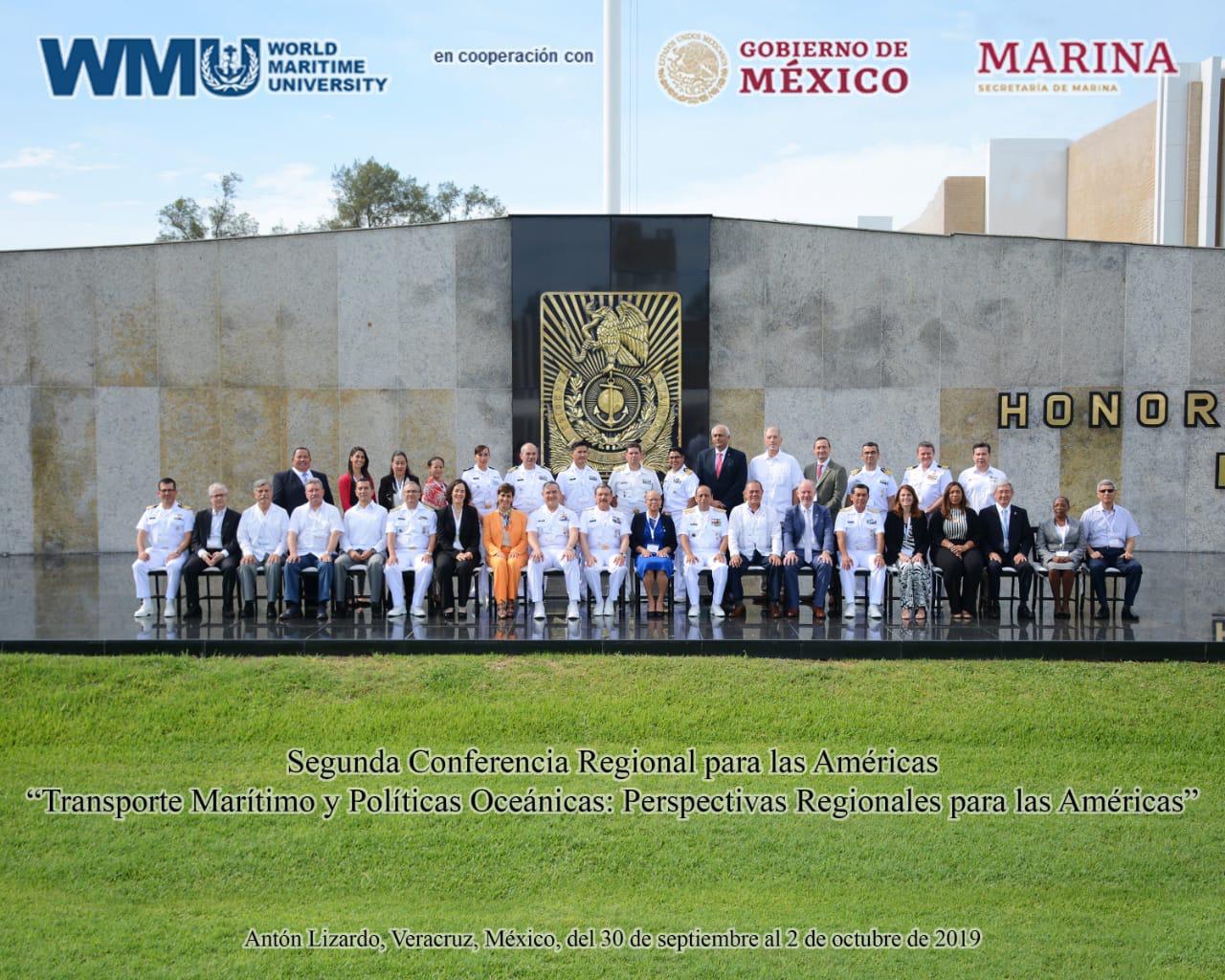


Our founding partner, Dr. María Belén Espiñeira, was one of the speakers at the Second WMU Regional Conference for the Americas: Maritime Transport and Ocean Policies: Regional Perspectives for the Americas, which was held in Veracruz, Mexico, since September 30 to October 2, 2019.
This event was jointly organized by the World Maritime University (WMU) and the Ports and Maritime Affairs Captaincy Unit (UNICAPAM) with a specific core topic: “Maritime Transport and Ocean Policies: Regional Perspectives for the Americas.”
The main issues discussed during the Conference included: 1) Maritime governance and national maritime transport policies, 2) Shipping, ports, and terminals, 3) Education and training, and Gender equality, 4) Ocean policies climate change policies, 5) Maritime boundaries and areas beyond national jurisdiction, and 6) a WMU alumni action plan.
Together with Dr. Espiñeira, a variety of distinguished speakers from government institutions, and the private and academy sectors were part of the event. These speakers included: Jeffrey G. Lantz (Director, Commercial Regulations and Standards, US Coast Guard), Claudia Kay Grant (Deputy-Director General, Maritime Administration, Jamaica), Iván Valenzuela Bosne (Maritime Administration, Chile), Alfonso Ascencio-Herrera (Legal Counsel, International Seabed Authority), Captain Anuj Chopra (Vice President, Americas, Right Ship Pty. Ltd), Dr. Liliana Rodríguez Cortés (International Ocean Institute), Dr. Mariamalia Rodríguez Chávez (Coordinator of the Alliance for Altamar, Latin America), and Dr. Takeshi Nakasawa (Executive Director, International Association of Maritime Universities).
Our founding partner delivered her lecture within the framework of Panel 3: Education and training, and Gender equality, and in her presentation, titled “Involvement of Women in the Latin American and Caribbean Maritime Industry,” she discussed the UN Sustainable Development Goal No. 5, i.e. Gender Equality and Empowerment of Women and Girls, the enshrinement in international agreements of the right to equal opportunities for men and women in similar conditions, and statistics which illustrated —without prejudice to the aforesaid— on the limited appearance of women in this industry and in leadership positions in the maritime sector.
Besides, doctor Espiñeira presented an analysis related to measures to be taken to revert this situation, and she identified the main challenges to be faced by the maritime industry regarding this issue, focusing in the need to:
– keep on involving women and encourage them to reach decision-making positions as a necessary condition to have more fair, equitable, and democratic societies;
– ensure a balance between work obligations and family responsibilities, providing flexibility women need to fully develop their professional abilities, and
– raise awareness across all age groups, especially children and teenagers (the future leaders), about the importance of the maritime industry in our lives and in national economies, the possibilities of economic growth it may offer, the place this industry has for women, where they will be able to reach their full potential by means of the opportunities new technologies and training provide.